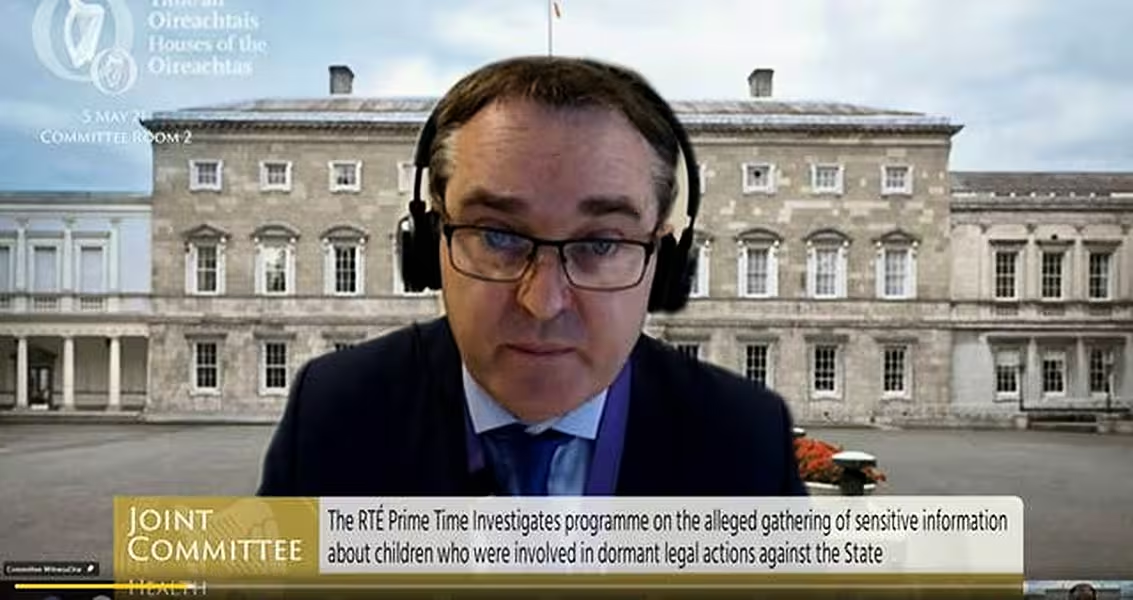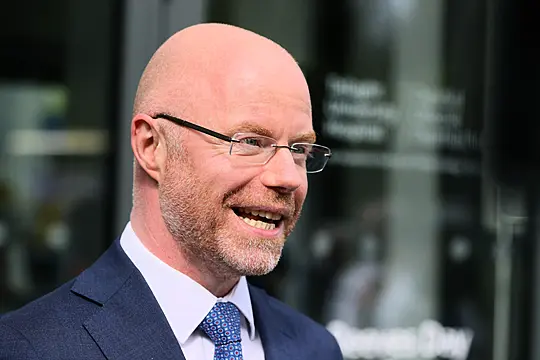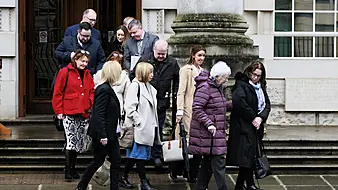The most senior civil servant in the Department of Health has rejected any suggestion that there is a “vast conspiracy” to block the introduction of universal healthcare in Ireland.
During an Oireachtas committee appearance on Wednesday, the Health Minister also insisted that no frustrations had been raised with him before the Sláintecare programme was hit with recent resignations.
Robert Watt, the secretary general of the Department of Health, appeared before the Health Committee alongside Health Minister Stephen Donnelly.
Questions have been asked about the future of the initiative aimed at introducing universal healthcare in Ireland following a number of high-profile resignation.
Gastroenterologist Professor Anthony O’Connor confirmed he had left the Sláintecare Implementation Advisory Council (SIAC) last week, following in the footsteps of chairman Dr Tom Keane and executive director Laura Magahy.
During an at-times testy appearance, both Mr Donnelly and Mr Watt pushed back against the idea that the Government is not committed to Sláintecare.
Responding to a question from Gino Kenny TD, Mr Watt asked for evidence that progress on the major reform is being blocked by “institutional resistance”.
#OireachtasTV - Watch LIVE as the Joint Committee on Health meets to discuss Engagement regarding the implementation of Sláintecare with Minister for Health @DonnellyStephen and Officials from @roinnslainte #seeforyourself
https://t.co/OM4LMASdeV https://t.co/PuiGiPp5gQ— Houses of the Oireachtas - Tithe an Oireachtais (@OireachtasNews) October 6, 2021
Mr Watt described such suggestions as “nonsense” and “vast conspiracies”.
The recent resignations dominated questions from parliamentarians.
Mr Donnelly told the committee he regrets the resignations but said he was not aware of any concerns among those who quit.
“Neither Tom or Laura raised any frustrations with me,” Mr Donnelly told the committee.
“Neither raised the issues with me or sought a meeting with me.
“I would very much have liked if the issues had been flagged earlier.”
Asked by Fine Gael TD whether department officials might have been aware of the frustrations, Mr Donnelly said: “I can’t speak for what other people may know.”
Mr Watt insisted there had not been policy disagreements between officials and those who resigned.
He said there is “no settled view” in the Department of Health on the particularly controversial issue of regionalisation, which would see the creation of new regional health areas in the health service.
Sinn Féin health spokesman and committee member David Cullinane expressed incredulity at such a claim.
“It’s hard to comprehend there was no sense of disagreement that would have led to their resignations,” he said.
He accused Mr Donnelly and Mr Watt of having a “nothing to see here” attitude.
Mr Watt said he believes Ms Magahy resigned because the Sláintecare office had not been set up properly.
“I think, ultimately, Laura felt that the office wasn’t set up properly and that it wasn’t going to be delivered properly unless we actually embedded the philosophy, the culture and the projects across the department,” he said.
“That’s the key lesson for me, in terms of what happened, that we need to look at our delivery structure and learn from it.”
He said the Department of Health is undergoing a process of restructuring.
Mr Donnelly said in his opening statement to the committee that a new board will be formed that will be co-chaired by Mr Watt and HSE chief Paul Reid.
The motives behind this reform were questioned by several committee members.
Social Democrats co-leader Róisín Shortall said it looks like a “hostile takeover”.
Mr Donnelly told the committee that accountability “will be shared across the department”.
Ms Shortall told the minister: “It sounds like a continuation of this concern about attempts to suffocate Sláintecare.”
She said making the HSE and the department responsible for their own reforms clashes with the “democratic decision” of the Dáil.

In a back-and-forth with Green Party TD Neasa Hourigan, Mr Watt also said that he and Mr Reid are “accountable to the minister, the Government and this committee”.
He said there had been “healthy debate” in the department about the timeline of the project and that one of the major barriers, since the start of the Covid-19 pandemic, had been the “bandwidth of the senior team”.
As Ireland emerges from the pandemic, Mr Watt said that is now changing and regionalisation will still be delivered.
Mr Donnelly also said a group will be created to advise on the next steps in the process.
He backed up his official, while acknowledging the worry that a “conflict” exists.
“We are tasking the centre with reducing its authority or executive bandwidth,” the Health Minister said.
“The only people who can lead it are the senior leadership teams in the organisations.”
“There is evidence of that in large-scale change all over the world.”
Acknowledging the resignations have damaged the perception of Sláintecare, Mr Donnelly insisted progress is being made.
He told the committee: “That commitment is absolute and unwavering. Universal healthcare has never been achieved in Ireland and we are still far from it today. Changing that, making universal healthcare a reality, is one of the defining projects of our time.”
He also said tackling long waiting lists is a “number one priority”.
He added: “They were terrible before Covid and have worsened since. People are living in pain. The long waits that many of our citizens face in order to access care are causing immense distress.”
He said a taskforce will now try to address the pressing issue and will be modelled on the vaccine taskforce that planned and delivered the jabs programme.







